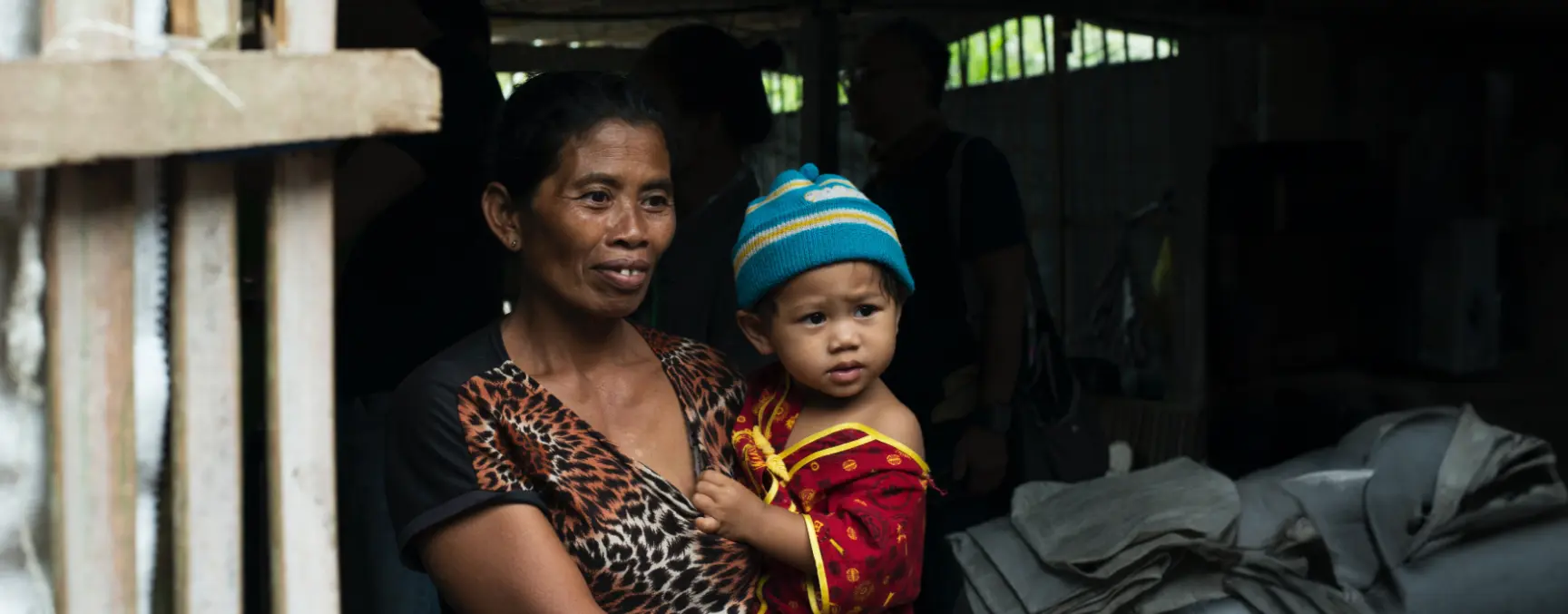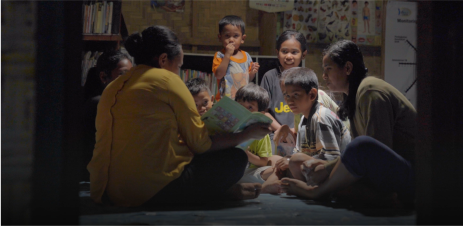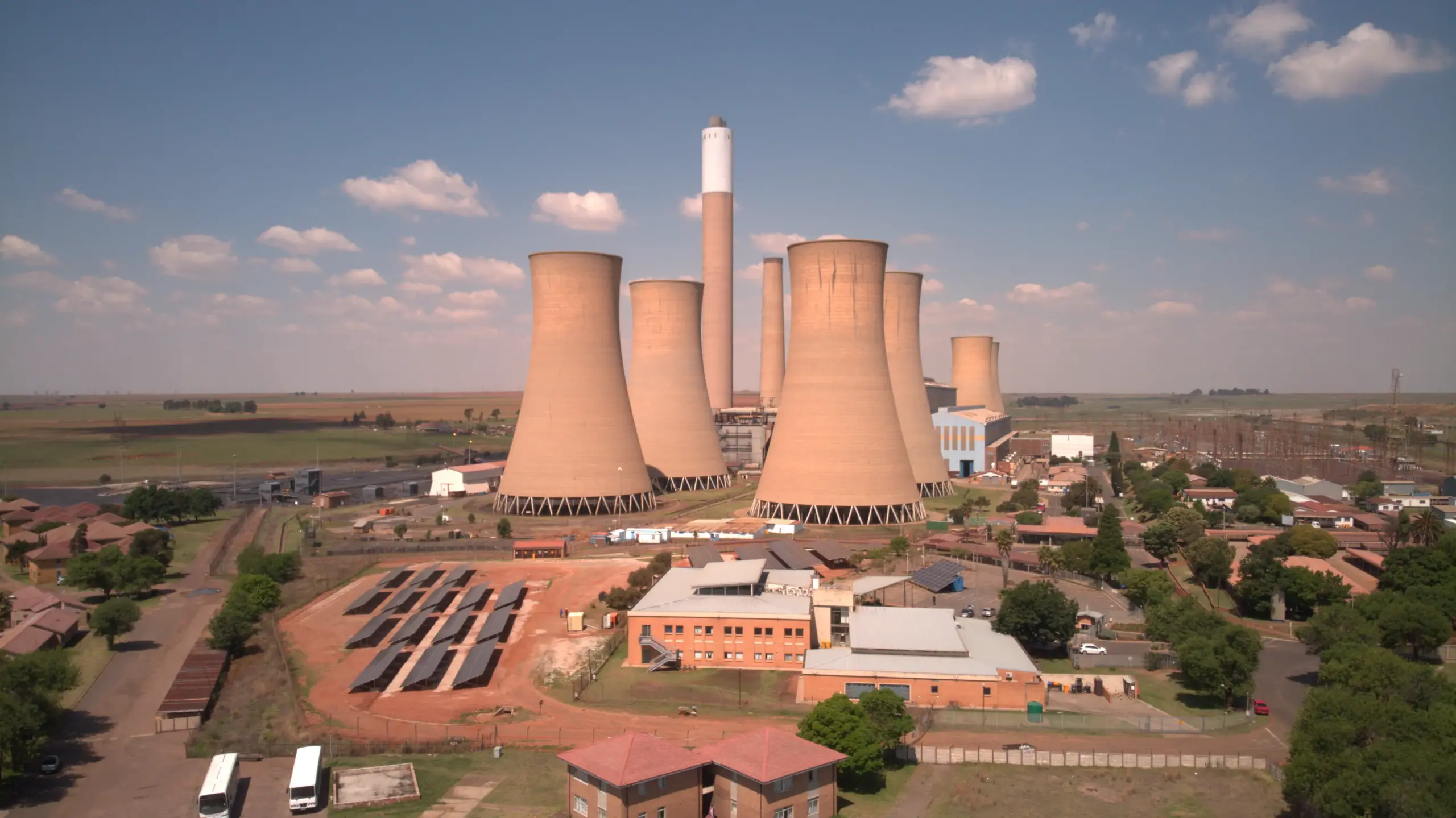Powering People and Planet 2023
Welcome to our annual impact report.
Explore progress made towards the ambitious goals that the Global Energy Alliance for People and Planet (GEAPP) was set up to achieve at COP26. This is an evidence-based view designed to offer a frank and honest account of our impact results.
Download the ReportPowering People and Planet 2023
Welcome to our annual impact report.
Explore progress made towards the ambitious goals that the Global Energy Alliance for People and Planet (GEAPP) was set up to achieve at COP26. This is an evidence-based view designed to offer a frank and honest account of our impact results.
Download the ReportImpact at a glance
Our transformative change approach to monitoring, evaluation, and learning (MEL) is key to capturing and strengthening our impact where it counts. Read more about our 2023 impacts.
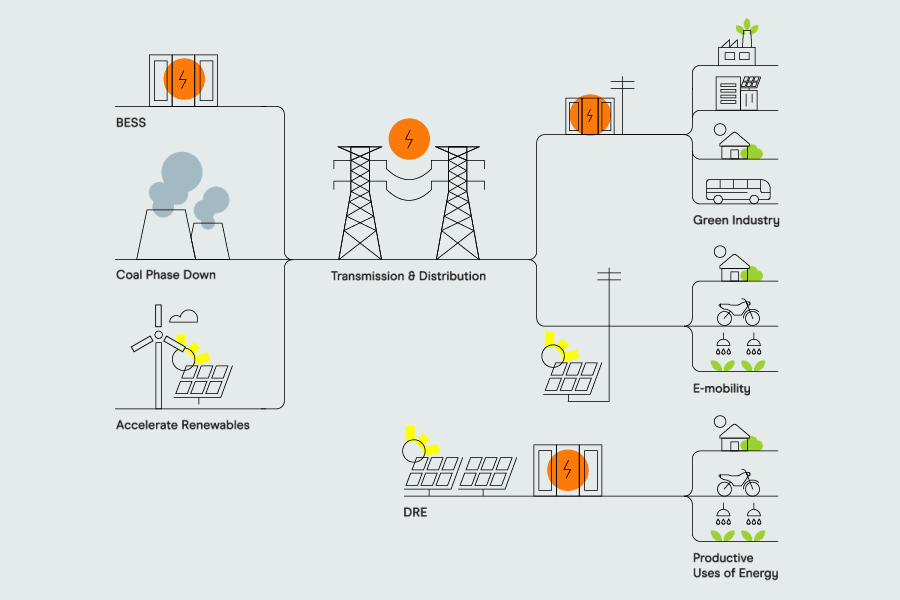
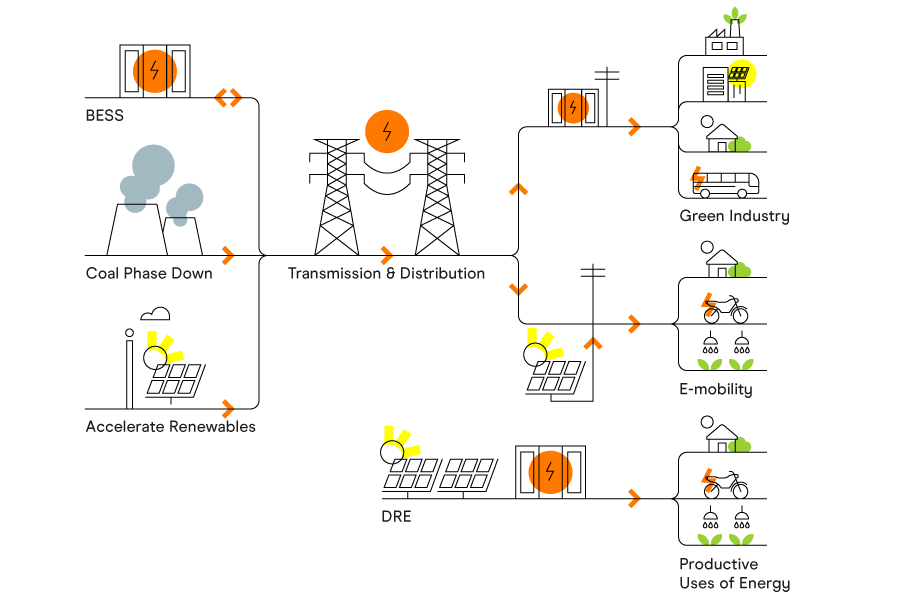
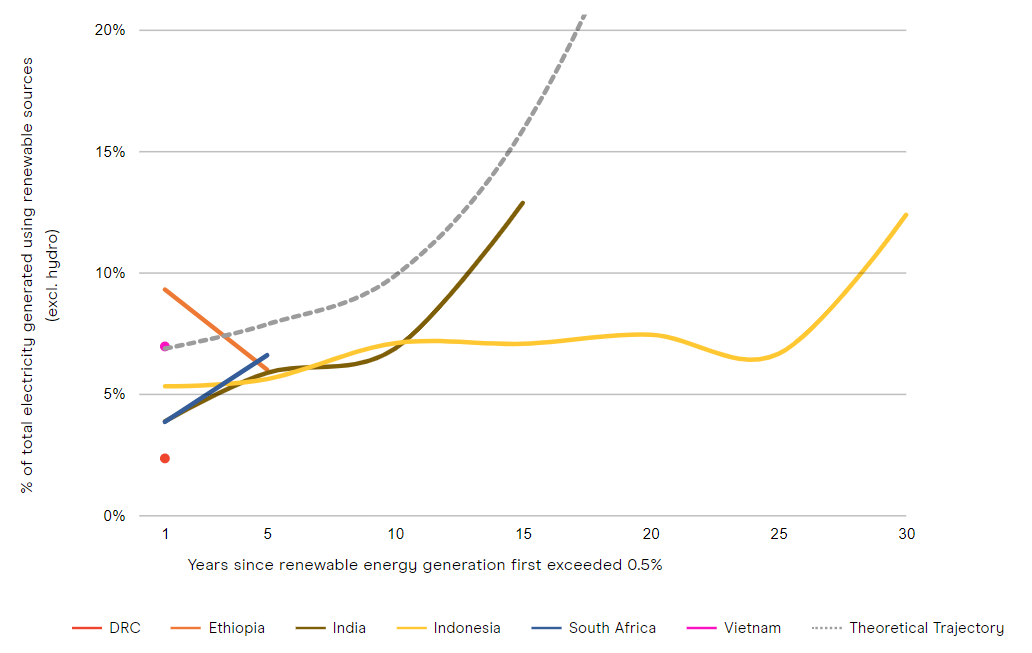
Zoomed frame highlights two of GEAPP’s priority countries — DRC and Vietnam — having first exceeded 0.5% of renewable energy generation in 2020.
Note: The earliest data point on the graph (plotted as year 1 for Indonesia) is for 1990, while the most recent data shown for all countries is for 2020. Data source: IEA Electricity Information 2022 https://www.iea.org/data-and-statistics/data-product/electricity-information
S-Curve of Renewable Energy Generation
Change is not linear, different countries require different solutions. GEAPP’s business model can be illustrated by reference to the ‘S’ curve. It provides a figurative representation of the time taken for technological innovations to reach a tipping point and become widespread. Having a long tail — the lower end of the curve — captures a slow pace of take-up, while a short tail transitioning to an upward curve represents a rapid take-up. Currently, the transition to green energy technologies in our priority countries is characterized by long tails, with the exception of India. The ‘S’ curves illustrate both a global energy transition problem and the market potential GEAPP is seeking to harness.
India
GEAPP has moved faster and farther in India than in any other priority country, with nine committed investments, eight at scoping or pipeline stage, with a combined value of $31.89m. To date, GEAPP investments in India have reduced or avoided 102,389 cumulative tons CO2e; provided 831,096 people/businesses with new or improved energy access; supported 597,475 jobs and livelihoods; and (directly & indirectly) mobilized $128m in additional financing.
In the state of Maharashtra, the Alliance has partnered with the government-owned utility MAHAPRIET to launch 500MW of rooftop solar and 500MW of ground-mounted, decentralized solar installation. When completed in the next two years,
the projects will benefit 100,000 farmers and reduce carbon emissions by 400 thousand tons a year. Learn more about our impact in India.
GEAPP has moved faster and farther in India than in any other priority country, with nine committed investments, eight at scoping or pipeline stage, with a combined value of $31.89m. To date, GEAPP investments in India have reduced or avoided 102,389 cumulative tons CO2e; provided 831,096 people/businesses with new or improved energy access; supported 597,475 jobs and livelihoods; and (directly & indirectly) mobilized $128m in additional financing.
In the state of Maharashtra, the Alliance has partnered with the government-owned utility MAHAPRIET to launch 500MW of rooftop solar and 500MW of ground-mounted, decentralized solar installation. When completed in the next two years,
the projects will benefit 100,000 farmers and reduce carbon emissions by 400 thousand tons a year. Learn more about our impact in India.
2030 Targets
GHG emissions reduction
Jobs
New energy access
Capital mobilization
Vietnam
A key element of GEAPP’s work in Vietnam is to ensure that battery energy storage systems (BESS) are an integral part of the new JET-P power development plan.
Ethiopia
Currently in Ethiopia, there are six committed investments and seven at scoping or pipeline stage, with a combined value of $37.61m.
One of the most advanced is the Distributed Renewable Energy Agricultural Modalities (DREAM) investment, the first private-sector-led initiative aimed at improving irrigation for small farmers, who historically have used diesel generators to power pumps to irrigate their crops. The initiative is a partnership between three Ministries, the Agriculture Transformation Institute, WB, EIB and AfDB.
DREAM is delivering nine pilot projects in government-supported Agricultural Commercialization Clusters that are currently without affordable and reliable irrigation. The initiative has ambitious targets to displace up to 200,000 tons of greenhouse gas emissions by 2030; deliver new or improved electricity access to over 290,000 people; and improve over 60,000 jobs. Projections show the investment may support crop yields increases of between 50 and 250%.
DREAM’s target of 200 mini grids providing water across 2m hectares of farmland by 2030 would become the largest mini grid-powered irrigation system in Africa. Learn more about our impact in Ethiopia.
Currently in Ethiopia, there are six committed investments and seven at scoping or pipeline stage, with a combined value of $37.61m.
One of the most advanced is the Distributed Renewable Energy Agricultural Modalities (DREAM) investment, the first private-sector-led initiative aimed at improving irrigation for small farmers, who historically have used diesel generators to power pumps to irrigate their crops. The initiative is a partnership between three Ministries, the Agriculture Transformation Institute, WB, EIB and AfDB.
DREAM is delivering nine pilot projects in government-supported Agricultural Commercialization Clusters that are currently without affordable and reliable irrigation. The initiative has ambitious targets to displace up to 200,000 tons of greenhouse gas emissions by 2030; deliver new or improved electricity access to over 290,000 people; and improve over 60,000 jobs. Projections show the investment may support crop yields increases of between 50 and 250%.
DREAM’s target of 200 mini grids providing water across 2m hectares of farmland by 2030 would become the largest mini grid-powered irrigation system in Africa. Learn more about our impact in Ethiopia.
2030 Targets
GHG emissions reduction
Jobs
New energy access
Capital mobilization
Indonesia
Launched in November 2022, GEAPP supports the Government of Indonesia’s JET-P implementation to realize its 2030 goals and 2050 net zero commitment.
Nigeria
GEAPP is supporting Nigeria via eight committed investments and six at scoping or pipeline stage, with a combined value of $52m.
One of GEAPP’s flagship investments is the Demand Aggregation for Renewable Technology (DART) program in partnership with All On, which aims to cut equipment costs by 5 per cent for solar panels, 23 per cent for BESS and of 29 per cent for single phase smart meters.
The $20m Nigeria DART pilot has helped to cut up-front equipment costs by between 20 per cent and 30 per cent for developers through aggregated buying. Learn more about our impact in Nigeria.
GEAPP is supporting Nigeria via eight committed investments and six at scoping or pipeline stage, with a combined value of $52m.
One of GEAPP’s flagship investments is the Demand Aggregation for Renewable Technology (DART) program in partnership with All On, which aims to cut equipment costs by 5 per cent for solar panels, 23 per cent for BESS and of 29 per cent for single phase smart meters.
The $20m Nigeria DART pilot has helped to cut up-front equipment costs by between 20 per cent and 30 per cent for developers through aggregated buying. Learn more about our impact in Nigeria.
2030 Targets
GHG emissions reduction
Jobs
New energy access
Capital mobilization
South Africa
With a national unemployment rate topping 32 per cent, the Alliance has a major focus on creating jobs through the green energy transition.
Democratic Republic of the Congo
Alliance partners came together initially to agree on a joint effort to electrify 100 urban and suburban areas based on mapping of renewable energy access potential across the nation. This will provide 20 million more people with power, increasing DRC’s energy access by 10 per cent by 2040. From 21 per cent to 31 per cent.
In 2023, GEAPP invested in Nuru — an innovative renewable energy development company based in Goma that deployed DRC’s first solar-based mini grid in 2017 — to expand this technology in the DRC’s eastern region. By taking on financial risk, GEAPP gave Nuru a chance to get the market moving and prove that these kinds of investments, often seen as too risky by financial institutions, can be highly profitable, sustainable, and transform local economies.
With funding secured, Nuru launched projects in Goma, Kindu and Bunia in eastern DRC. The Bunia site will become the largest off-grid solar hybrid metro grid in sub-Saharan Africa with 8MW. These projects will allow Nuru to expand renewable energy capacity by 13.7MW peak and support annual energy consumption of 22.4m kWh, enough power to support the needs of about 120,000 people. Learn more about our impact in the DRC.
Alliance partners came together initially to agree on a joint effort to electrify 100 urban and suburban areas based on mapping of renewable energy access potential across the nation. This will provide 20 million more people with power, increasing DRC’s energy access by 10 per cent by 2040. From 21 per cent to 31 per cent.
In 2023, GEAPP invested in Nuru — an innovative renewable energy development company based in Goma that deployed DRC’s first solar-based mini grid in 2017 — to expand this technology in the DRC’s eastern region. By taking on financial risk, GEAPP gave Nuru a chance to get the market moving and prove that these kinds of investments, often seen as too risky by financial institutions, can be highly profitable, sustainable, and transform local economies.
With funding secured, Nuru launched projects in Goma, Kindu and Bunia in eastern DRC. The Bunia site will become the largest off-grid solar hybrid metro grid in sub-Saharan Africa with 8MW. These projects will allow Nuru to expand renewable energy capacity by 13.7MW peak and support annual energy consumption of 22.4m kWh, enough power to support the needs of about 120,000 people. Learn more about our impact in the DRC.
2030 Targets
GHG emissions reduction
Jobs
New energy access
Capital mobilization
Our record demonstrates that change is possible.
Our record demonstrates that change is possible – and that markets can be shaped to support a just transition. Many of the barriers are grounded in perceptions of risk, uncertain revenue streams, the small scale of operations, and the limited size of markets. Our portfolio shows that these can be lowered and ultimately, removed.
It’s time to sharpen our focus. We are focused on priority areas.
It’s time to sharpen our focus. We are focused on priority areas — the supply and uptake of reliable, affordable green electricity through DRE, BESS, and our pilot pipeline and eight countries.
Our alliance is uniquely well-placed to catalyze change.
It brings together agencies with vast expertise and knowledge, along with significant capital assets. GEAPP provides a coordination and implementation vehicle to face these challenges.
Invest in transformational, integrated solutions.
We are applying data-led learning to deepen our investments into the energy solutions that show the greatest impact and potential for transformative change.
We can play a powerful role in displacing diesel.
We have demonstrated the potential for cost-competitive DRE in several countries where diesel generators represent green energy’s main competition.
Streamline funding and strengthen pipelines.
We are investing in building streamlined systems to work with partners to find the smart funding solutions quickly.
Take advantage of our agility, flexibility and willingness to take risk.
We are increasing the links between policy, investments and implementation pathways so we can accelerate energy solution deployment.


